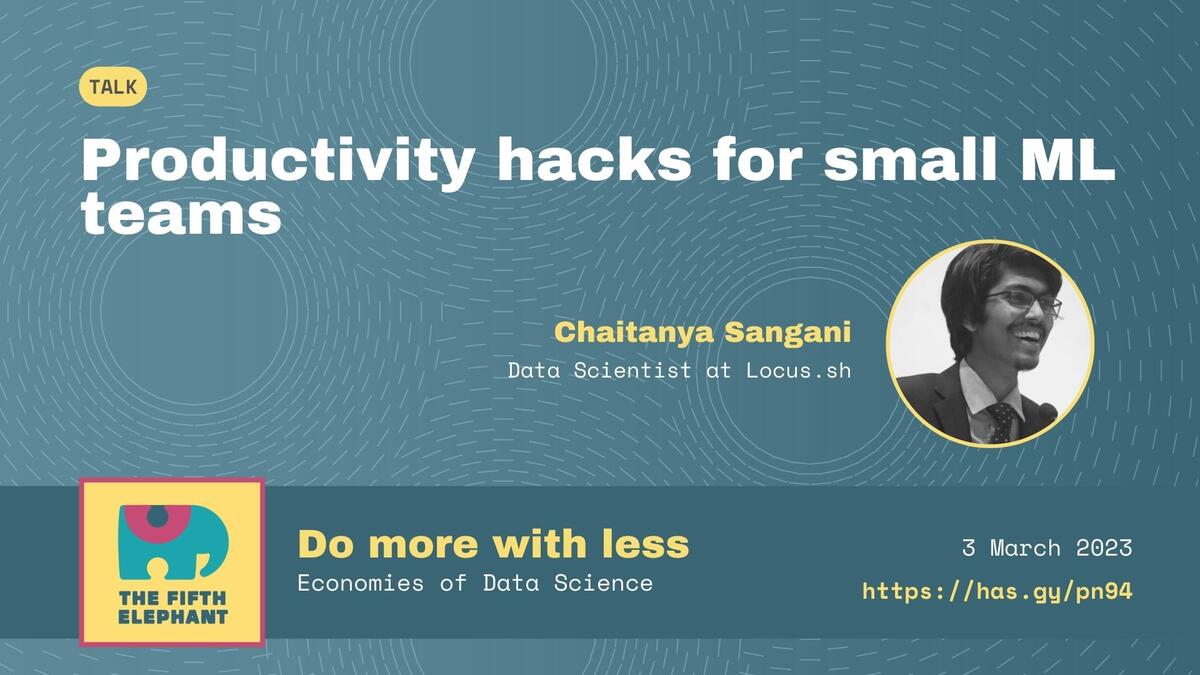Machine Learning (ML) has started to impact our day-to-day lives at unprecedented levels. With the advent of smartphones, technology has pushed the boundaries for creating new applications requiring the use of ML at scale. The very fabric of how we use technology has changed with the adoption of Deep Learning. A number of breakthroughs have happened in the field of data science, such as protein folding, vaccine and drug discovery, conversational bots. While there is a massive need for data scientists and ML engineers, the problems that arise due to the nature of how economic theories and measurements of business impact are not part of the ML solution or the ideation phase.
One of the underlying philosophies for Machine learning that is relevant for businesses is that at scale, the cost of serving that growth is expected to reduce. In other words, the more users or usage, the efficiency impact is greater taking into account the initial development costs. In 2023 and onwards, teams and companies will be held more accountable with regard to cost, impact, and value than they were in the past. Data teams are going to be seen as a business function much more than a research function unless the organization has the bandwidth and the firepower to run research functions. There will be bigger shift towards Observability and Explainability for Data and ML models, and the process of working with them aka DataOps and MLOps. The evaluation of ML models will be related to how they adapt and change the business KPI needles rather than publishing F1-scores against a validation dataset. This brings the data teams to work closely with functions such as product, business, sales, and customers in order to build and run successful Machine learning implementations.
-
How do data science teams measure the performance of a model?
- What are the Key Performance Indicators (KPIs)?
- Do data scientists who designed the model see the ML approach as a black box?
-
How do businesses evaluate the impact of the ML models?
- How do you measure the Return of Investment (RoI)?
- How are you increasing the efficiencies in a business landscape?
-
How is Observability implemented in your organization?
- Can you elaborate on the tools, processes and metrics used?
- How are you increasing the usage time of an application for a user?
-
What are your infrastructure costs?
- For data-heavy ML models, how do you plan long-term infrastructure investments?
- How do you reduce the cost of operating and managing systems?
-
What has been the customer feedback?
- Are the customers finding it difficult to interpret data shown to them?
- Do you see a high correlation in the business?
-
How are you measuring and improving customer experience?
- Do you still work on augmenting reality for users?
- Are you still continuing to use advertisment targeting based on personal preference and usage?
RSVP to participate. This project consists of talks, forum and in-person events. Check the schedule to stay updated. Talks held between in-person conferences are online unless specifically mentioned.
Purchase a subscription to access videos and to support The Fifth Elephant’s community activities.
Code of Conduct: Hasgeek’s Code of Conduct applies to all participants and speakers.
COVID protocols and masking policy: In keeping with COVID protocols, the following is applicable to all participants:
- Participants attending the meetups in person must keep their vaccination certificates handy. The venue may ask you to show your vaccination certificate as proof of being fully vaccinated.
- Wearing masks is optional.
Contact information: For queries about The Fifth Elephant or this track, contact Hasgeek at info@hasgeek.com or call (91)7676332020.


